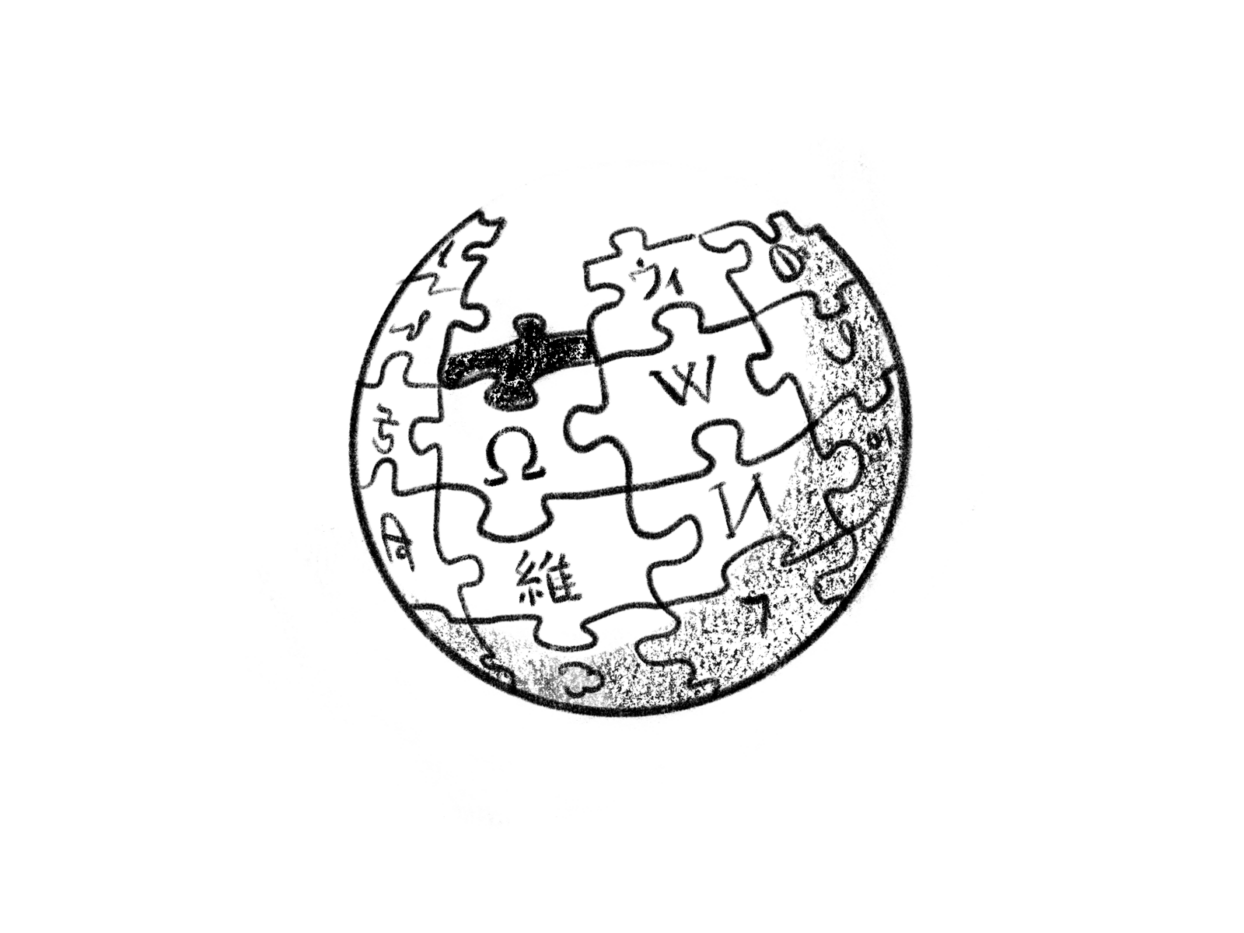
Image by Ivy Sanders Schneider

Image by Ivy Sanders Schneider
As a kid in Huntsville, Alabama, Jimmy Wales would eagerly plaster his family’s World Book Encyclopedia set with stickers made by the company containing updated information. Some twenty years later, in 1996, he was a PhD dropout building a fledgling company called Bomis, which created web portals linking to sites about laddish topics like cars, philosophy, and sports. The site didn’t find success, however, until it started focusing on porn, eventually offering paid subscriptions that unlocked content from “Bomis Babes.” In 2008, Bomis’s advertising director told The Economist that 99 percent of queries on the site were for nude women (a claim that Wales has disputed). The Atlantic nicknamed it the “Playboy of the Internet.”
When Wales decided to use some of the money from his soft-core empire to fund an internet encyclopedia in 2001, the dot-com bubble was bursting. Stalwarts of the infant web were folding, and the internet’s future was uncertain. But the adult-content site’s stodgy offshoot was exploding. “One of the reasons that Wikipedia became a huge success, I would say, ironically, is the lack of funding,” Wales said in a 2018 episode of the “How I Built This” podcast. With few resources, users had to pick up the slack. In Wikipedia’s first year, volunteers wrote nearly 20,000 articles in more than ten languages — on everything from discrete mathematics to Drew Barrymore. As other e-companies either fell away or grew into global hegemons, Wikipedia remained stable. When its founders launched a first fundraising campaign, donations exceeded the goal in days. It was clear that the nonprofit, community-funded model was both viable and popular.
Wikipedia was often derided as the lazy student’s shortcut — an inaccurate, crowdsourced platform void of authority and barred from serious bibliographies. As its credibility has increased — studies have shown for years now that it is at least as accurate as the Britannica — so has the respect for its institutional solidity in a volatile internet landscape. Today, as Web 2.0 companies collectively flounder, it’s worth asking what kind of financial models will survive, and whether superior ones could sprout up from the ruins. There are some examples of new approaches — single-operator email newsletters are exploding, for one. But reviving the hacker ethos of the smaller, lawless early web will likely require a more definitive disruption to the status quo than what the current downturn offers. Both Wikipedia and Meta may have built their earliest followings with photos of women — consensually or not — but their divergent paths reflect the ways that the internet has grown since then, and what kind of economic structures might last.
Annie Rauwerda is a writer and comedian. She maintains the “Depths of Wikipedia” social media accounts.